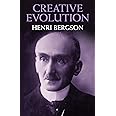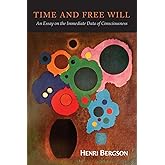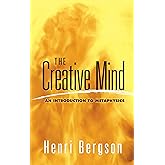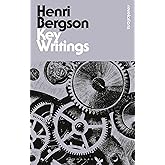
Enjoy fast, free delivery, exclusive deals, and award-winning movies & TV shows with Prime
Try Prime
and start saving today with fast, free delivery
Amazon Prime includes:
Fast, FREE Delivery is available to Prime members. To join, select "Try Amazon Prime and start saving today with Fast, FREE Delivery" below the Add to Cart button.
Amazon Prime members enjoy:- Cardmembers earn 5% Back at Amazon.com with a Prime Credit Card.
- Unlimited Free Two-Day Delivery
- Streaming of thousands of movies and TV shows with limited ads on Prime Video.
- A Kindle book to borrow for free each month - with no due dates
- Listen to over 2 million songs and hundreds of playlists
- Unlimited photo storage with anywhere access
Important: Your credit card will NOT be charged when you start your free trial or if you cancel during the trial period. If you're happy with Amazon Prime, do nothing. At the end of the free trial, your membership will automatically upgrade to a monthly membership.

Download the free Kindle app and start reading Kindle books instantly on your smartphone, tablet, or computer - no Kindle device required.
Read instantly on your browser with Kindle for Web.
Using your mobile phone camera - scan the code below and download the Kindle app.



 Audible sample
Audible sample Matter and Memory Paperback – January 1, 2010
Purchase options and add-ons
- Print length136 pages
- LanguageEnglish
- PublisherDigireads.com
- Publication dateJanuary 1, 2010
- Dimensions6 x 0.32 x 9 inches
- ISBN-101420937804
- ISBN-13978-1420937800
 |
Frequently bought together

Customers who viewed this item also viewed
Product details
- Publisher : Digireads.com
- Publication date : January 1, 2010
- Language : English
- Print length : 136 pages
- ISBN-10 : 1420937804
- ISBN-13 : 978-1420937800
- Item Weight : 7.4 ounces
- Dimensions : 6 x 0.32 x 9 inches
- Best Sellers Rank: #1,221,521 in Books (See Top 100 in Books)
- #143 in Consciousness & Thought Philosophy
- #150 in Modern Western Philosophy
- #799 in Epistemology Philosophy
- Customer Reviews:
About the author

Discover more of the author’s books, see similar authors, read book recommendations and more.
Customer reviews
Customer Reviews, including Product Star Ratings help customers to learn more about the product and decide whether it is the right product for them.
To calculate the overall star rating and percentage breakdown by star, we don’t use a simple average. Instead, our system considers things like how recent a review is and if the reviewer bought the item on Amazon. It also analyzed reviews to verify trustworthiness.
Learn more how customers reviews work on AmazonTop reviews from the United States
There was a problem filtering reviews. Please reload the page.
- Reviewed in the United States on March 14, 2015Anyone interested in Bergson's important but challenging study of the mind and memory needs to know that this is an excellent edition--a sturdy translation of the book's fifth French edition published in English in 1911. It is attractive with ample margins. The publishers did an excellent job with this 2011 reprint. Do not confuse this print edition with the Kindle editions of this book as these are unreadable, at their best an indication of what can go wrong with optical scanning.
- Reviewed in the United States on September 10, 2019Bergson solves the mind/body problem by observing the false problem. There is nothing more I could say to elaborate that isn't said better in the book... This was the Zone Publishing edition which is quite nice, and definitely worth purchase.
- Reviewed in the United States on March 16, 2015The paperback edition is perfectly formatted and very readable. I initially bought another edition because I was scared off by the kindle review; wish I had just bought this one.
- Reviewed in the United States on December 28, 2020I have been fortunate to participate in an online philosophy reading group on Henri Bergson (1859 -- 1941). With the guidance of both an experienced scholar and teacher and a new PhD who wrote a dissertation on Bergson, our group read "Time and Free Will" (1889) followed by "Matter and Memory" (1896). Following a holiday break, we will study Bergson's most famous work, "Creative Evolution" (1907). Bergson was for a time a surprisingly popular, even faddish, philosopher but fell into obscurity even during the latter part of his life. He received the 1927 Nobel Prize for Literature.
"Matter and Memory" is an extraordinarily difficult book. It is in turn both beautifully written and insightful and maddingly opaque. Bergson states his them at the outset: "This book affirms the reality of spirit and the reality of matter and tries to determine the relationship of one to the other by the study of a definite example, that of memory." The broad goal of the book is to challenge the scientific, naturalistic worldview that was prevalent in Bergson's time and remains so today. He moved and impressed many readers from many walks of life but the difficulty is in the detail. Bergson proceeded by examining the realist -- idealist dichotomy in philosophy. He tried to find shared assumptions underlying both sides of this dichotomy and then to undermine these shared assumptions by taking a different path. The result was a process oriented philosophy with ties to the work of Bergson's friend, William James, and a little later to the work of Alfred North Whitehead.
The book consists of an Introduction, four lengthy chapters, and a Summary and Conclusion. The approach of the book is more concentric than linear. Each part says essentially the same thing but in different ways and with different levels of detail. It tries to explain the nature of reality and the relationship of mind and spirit. It examines and redefines the natures of perception and the nature of memory. Bergson vehemently denies that perception and memory are located "in" the brain and nervous system but sees instead the brain as part of a long processual chain. He distinguishes and relates "pure" perception and "pure memory" and how they work together and differ. He denies that memory is a weaker form of perception stored in and a function of the brain. He sees memory as part of a spiritual flow that informs and shapes perception. Perception is of images shaped by memory. It functions spatially through the body and is invariably directed to the solving of practical problems ranging from where to find food through the intricacies of science. Perception is goal-directed, active, and forward-looking and occurs in space. Memory is contemplative, reflective, and is within the continued durational flow of time. There is a tension of varying degrees between the two in every experience.
Bergson offers a variety of approaches in developing his position. These range from argument, analysis of experience, discussion of the scientific findings of his day, psychology, drawings and illustrations, metaphor, introspection, and intuition. The approaches are mixed together. It is easy to remember the eloquent, beautiful, lucid passages at the expense of the sections of the book that are difficult.
In the first part of the book, Bergson tries to get beyond idealism and realism by developing his philosophy of images and the basis for his discussion of the relationship between action and reflection. In the second and for me most difficult section of the book Bergson uses scientific findings of his day to argue against a materialistic, epiphenomenal understanding of thought and memory. The third part of the book was, for me, philosophically the most interesting and clearest written, difficult though it is. It discusses the nature of memory and perception, both "pure" -- for themselves and mixed with each other as they are in experience. It concerns the relationship and interweaving of spirit and body. An important part of this chapter is developed through Bergson's use and discussion of a figure of an inverted cone. We spent substantial time in our online class discussing this figure. The fourth part of the book draws broad philosophical conclusions about the nature of reality as continuous, flowing, temporal and interconnected, with perceptions of discrete objects in space only an limited and specialized part of this flow. Among other things, Bergson makes arguments founded upon and attempting to refute the famous paradoxes about space and motion of Zeno.
I read the book more than once, followed the discussions in our class and read some good secondary source material. There is some beautifully evocative material in "Matter and Memory" but I overall am confused about what to make of the book. It was valuable to study the book in the company of other interested readers. With all the popularity that Bergson once had, this is not a book for casual reading.
Robin Friedman
- Reviewed in the United States on February 4, 2017It's Matter and Memory, sure, but there are typos throughout, some far more egregious than others. The worst of all, and this should be embarrassing to the publishers, is that they even get the author's name wrong on the spine. It's Bergson, not Bergman... Additionally, the formatting is abysmal: the text isn't justified and new paragraphs aren't indented. It's a tough book in the first place that's made all the more difficult by the sloppy structure and poor product produces here. Not worth the cost. If you're going to read Matter and Memory, do yourself a favor and buy a good copy of the book from another publisher.
- Reviewed in the United States on October 9, 2017The context thru which the superiority of Bergson philosophy over Empiricism becomes manifested.
- Reviewed in the United States on August 19, 2014Bad translation! Typos and other mistakes!
- Reviewed in the United States on January 12, 2017Thank you!!
Top reviews from other countries
 Jeffrey pollittReviewed in Australia on May 17, 2021
Jeffrey pollittReviewed in Australia on May 17, 20213.0 out of 5 stars Ok but out of date today
Times have changed
 jreviewerReviewed in the United Kingdom on October 9, 2017
jreviewerReviewed in the United Kingdom on October 9, 20175.0 out of 5 stars Scholarly correct edition
There is some confusion here over editions. The one star review has been misplaced, as it says the alternative Zone edition is fine - but this is the Zone edition. Anyway, the Zone edition is the scholarly edition to buy and is the one used by professional university philosophers working on Bergson.
 Dhruv AnandReviewed in India on August 26, 2016
Dhruv AnandReviewed in India on August 26, 20161.0 out of 5 stars No Matter - No Memory
The rating is in no way a representation of Bergson's work. It is unequivocally a representation of the kindle edition of the book sold.
All one need do is "Look Inside" and scroll a couple of pages down to see words
"mis 3ing and in cor re^4ly repD4fcet 45....." - If you want to read a book with a large part of it addressed as I have in quotes, that is what the kindle edition will offer. For all my advice, I failed to "Look Inside" so I write with irony proudly sitting on my shoulder having a laugh.
Get the Scholar Select edition - Paperback or hardcover . The edition has been proof read and you will not have to deduce sentences, rather than meaning. The book which I have rated elsewhere is an essential and fantastic read.
 Anthony M.Reviewed in Canada on August 17, 2020
Anthony M.Reviewed in Canada on August 17, 20205.0 out of 5 stars Complex, but Enlightening
Bergson is the best philosopher there is, in my opinion. I completely understand the love that Deleuze has for Bergsonian thought, now. Definitely worth the read.
 WHOOPReviewed in the United Kingdom on July 21, 2013
WHOOPReviewed in the United Kingdom on July 21, 20135.0 out of 5 stars Good book - price and delivery!
A really interesting book - if you like Bachelard then this should be part of a reading list. Great price and delivery. AAA***














